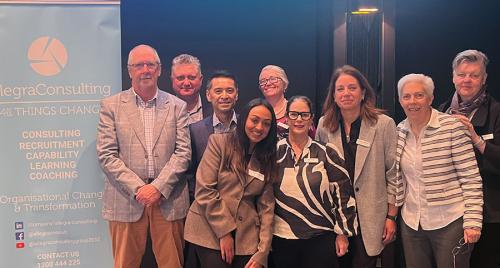
Our series on change management around the world continues with a look at issues, challenges and attitudes towards business transformation in the Russian Federation.
Deloitte’s recent Change Management in Project Work Survey included responses from Russian Federation change managers within companies across wide-ranging sectors such as energy and resources, financial services, retail, media and telecommunications, pharmaceutical, metals and mining, transport and logistics. We couldn’t resist seeing how the change space operates in such a foreign culture.
The results reveals that while change management specialists and teams face similar issues to their peers here in Australia, there is perhaps even more room for improvement in both the strategies used to effect successful change, as well as the level of support for change specialists from senior management.
People power
The survey highlighted the importance of effective people management in achieving successful business change in Russia, with 100 per cent of respondents agreeing that this part of the change equation is critical and 92 per cent reporting that employee resistance to change should be an expected reaction.
A high number of respondents (78 per cent) reported that the intensity of change resistance depends on an organisation’s corporate culture, indicating that workplace cultures that are more open and flexible may find transformation processes less bumpy.
Challenges at the top
Vision and leadership were seen as areas of potential improvement in the Russian change management landscape. Twenty-six per cent of survey respondents felt their organisation’s leaders could be timelier in conducting change management impact assessments, and a similar number felt change in their organisations could be more closely aligned to strategic business goals and objectives.
Eighteen per cent of respondents indicated a lack of change impact assessment activities in their organisations while 32 per cent confirmed the need for more intensive work in this area. Nineteen per cent of participants indicated a lack of organisational support for change implementation programs.
Communication the key
The survey highlighted the importance of communication to the success of any change project. Russian change managers report face-to-face interactions as the most effective in their communication toolkit, including project team meetings with company employees, face-to-face meetings between managers and their reports and even informal discussion among employees. Communication strategies such as emails and printed materials were seen as far less effective than face-to-face interactions.
Meanwhile, only 44 per cent of change managers said they are provided with project information on time, suggesting room for improvement in the organisational communications that support change programs








